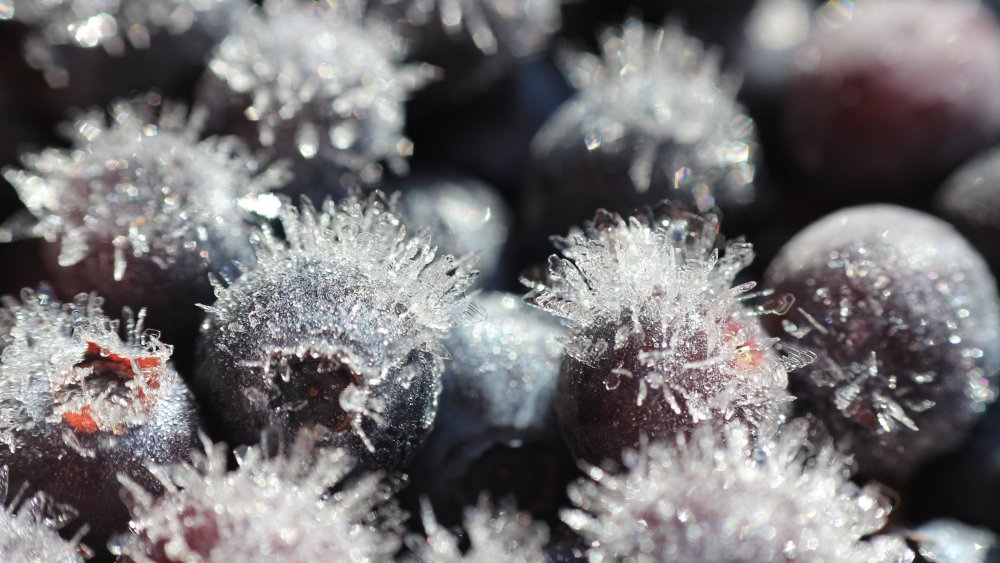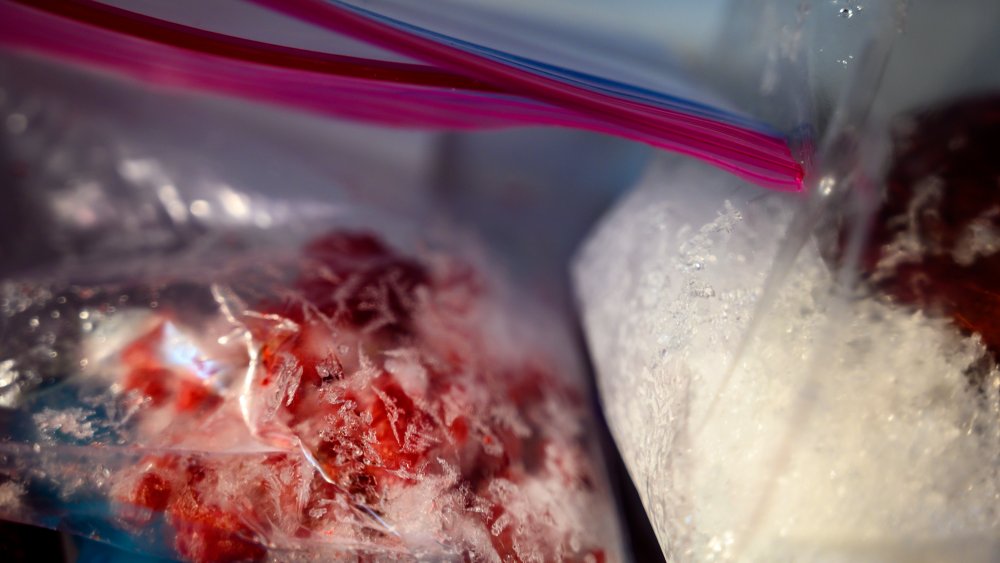Here's How To Prevent Freezer Burn
While freezing fresh produce is a great way to use those fresh fruits and vegetables throughout the entire year, there are a few steps to take that the berries and stone fruit that you've squirreled away aren't suffering from freezer burn by the time you're ready to use it a few months down the road.
Freezing slows down the decomposition process of food, but also exposes it to the possibility of freezer burn (via The Kitchn). While it's not at all harmful to consume, it affects the taste and texture of the food. You'll probably recognize it if you see it, but it manifests as discolored food coated with ice crystals that are concentrated in splotches (via Epicurious).
Freezer burn occurs when the water content of the outer layer of the food evaporates in the dry and cold atmosphere of the freezer, leaving behind dehydrated food — and freezer burn.
Ways to avoid freezer burn
The best way to ensure freezer burn doesn't happen is to make sure that your frozen foods are properly wrapped before introducing them to the freezer so that the food product isn't excessively exposed to the cold air. The idea is to eliminate as much air as possible when storing your items, which means you'll want to use products like plastic wrap or aluminum foil, removing all the excess air in the process.
Bringing frozen food to room temperature and refreezing it also encourages the growth of freezer burn. So when you're scooping ice cream or grabbing some frozen berries to use in a smoothie, leave them out on the counter for as short a time as possible.
One final thing to make sure that your food will remain freezer burn free is to ensure that the freezer is actually doing its part. Having a freezer above true freezing temperature will also induce freezer burn so if you're having issues, try making the temperature a bit colder.

